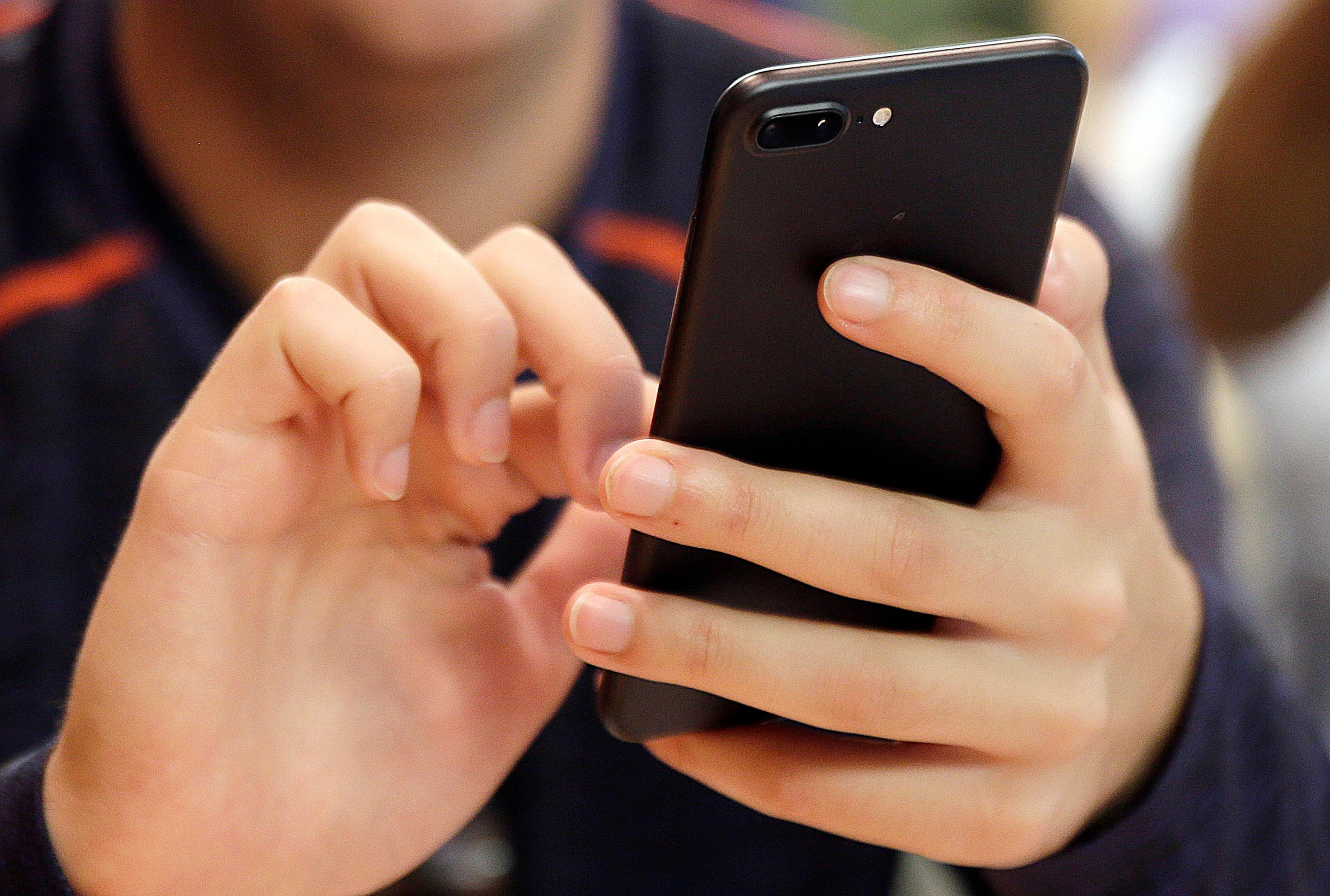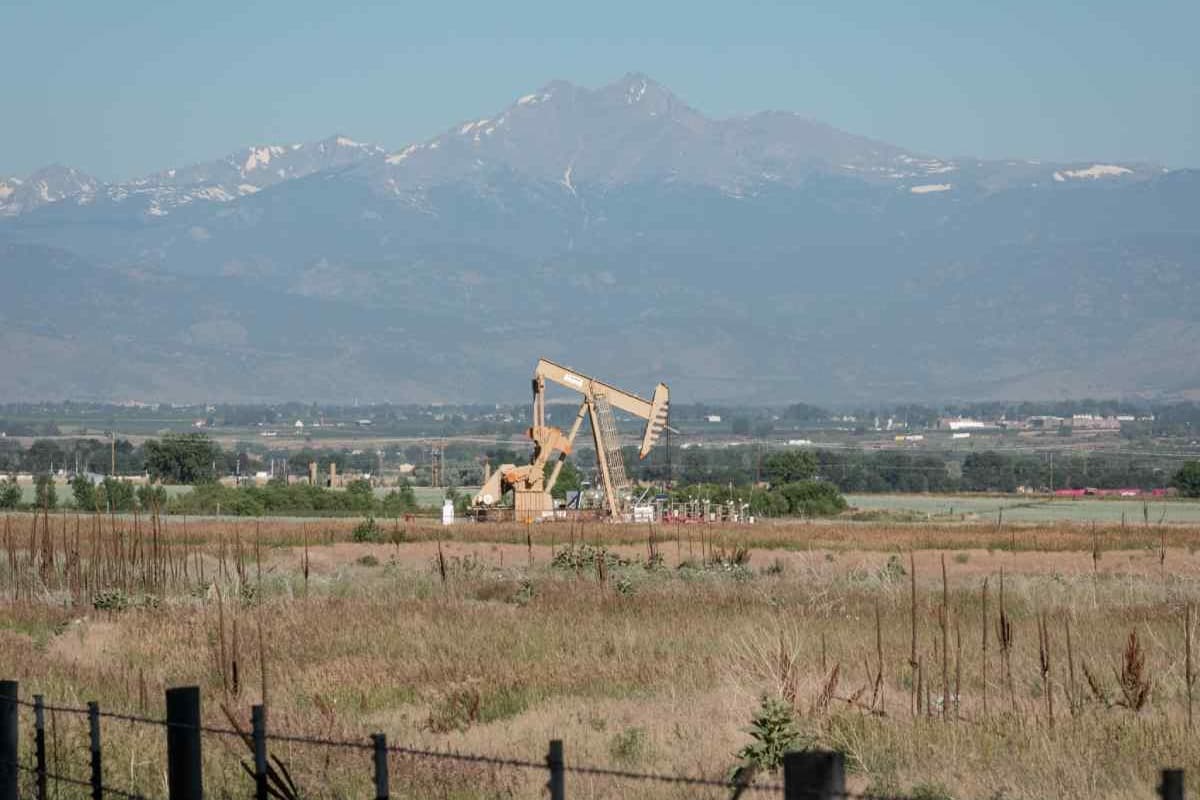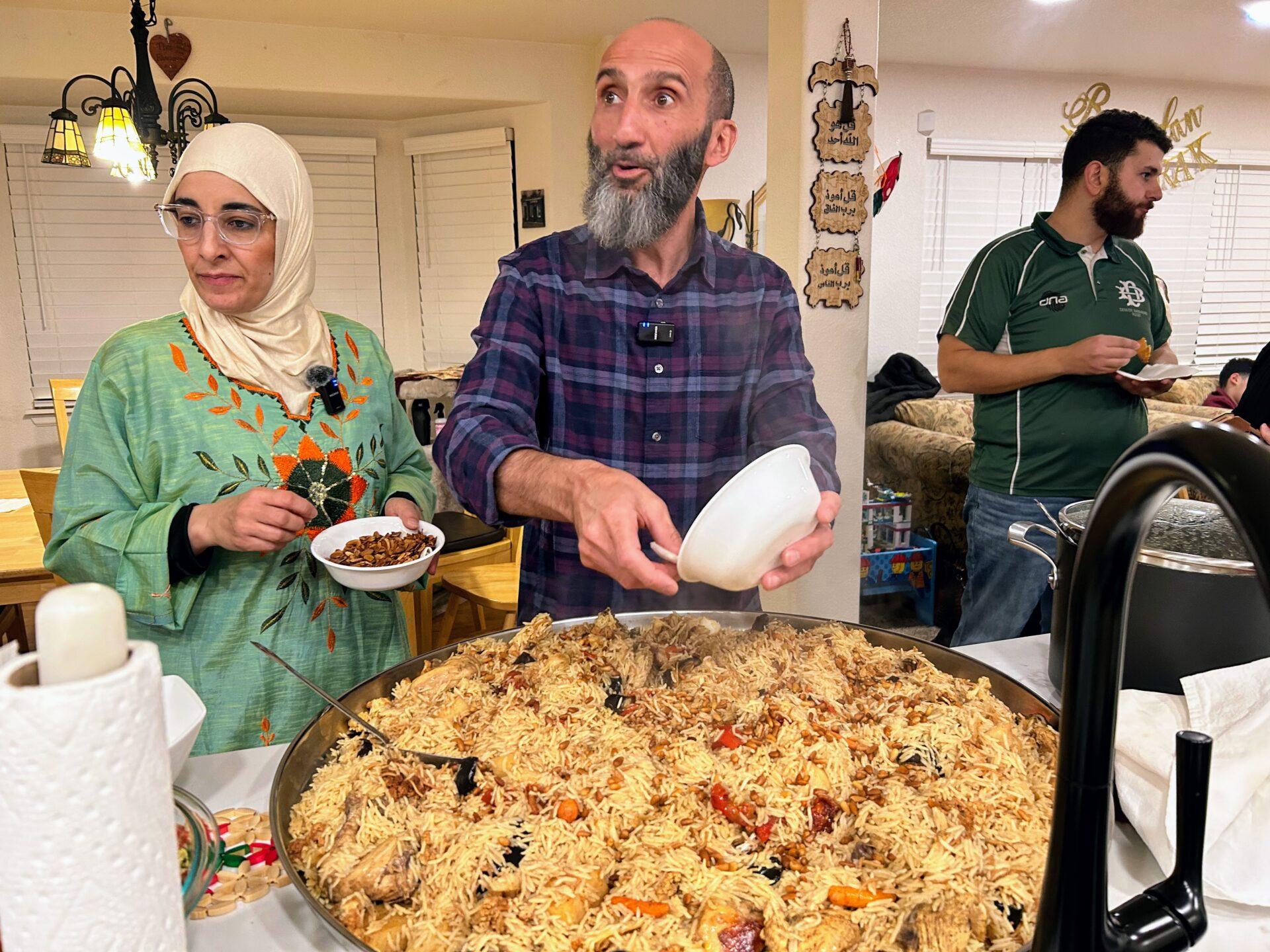
The scent of warm spices filled the air, the crackle of hot oil in a pan.
A flurry of activity unfolded in the kitchen of Feda and Kamel Elwazeir’s home in Colorado Springs.
Hands moved with years of perfected timing — stuffing, folding, layering. The anticipation of Iftar, the meal that will break the day’s fast, hums through the house, an unspoken ritual.
Ramadan is underway.
For Muslims around the world, it’s a time of reflection, self-discipline, and spiritual renewal. From sunrise to sunset, they fast — not even drinking water — until the moment the sun sets. Then, they gather.
On a cool March night, in this home, the act of fasting gave way to the joy of sharing a meal with friends and family.
‘Whose Maqluba is right?’
Before the guests arrived, Feda sat at her kitchen island, working quickly but carefully. Her fingers sealed triangle-shaped pastries.
"These are what we call samboosas in Arabic," she explained, placing a scoop of seasoned potatoes, peas, and carrots into the center of the dough.
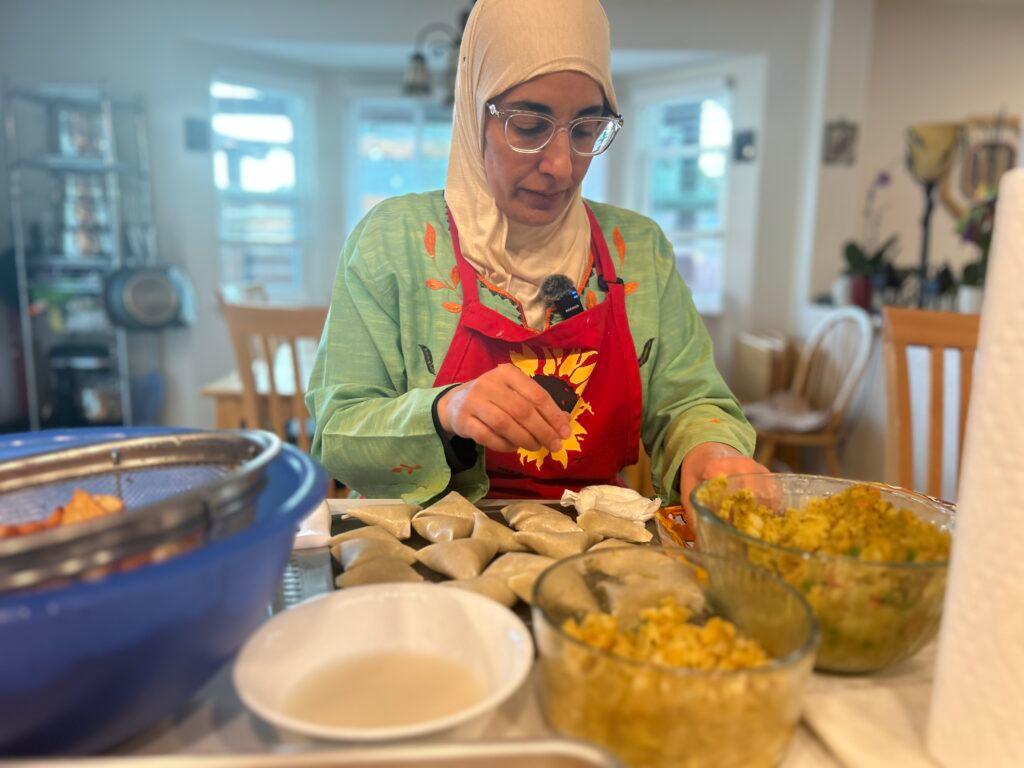
Kamel watched as she dipped her finger into a flour-and-water paste.
"Just to seal it," he says. "So when you deep fry it, it doesn't open up."
The samboosas sizzled on the stove, cooking quickly to crispy, golden perfection.
"There are things we only make during Ramadan," Feda said, a laugh in her voice, "because outside of Ramadan, it’s just not the same."
One of those dishes is the star of the night — Maqluba.
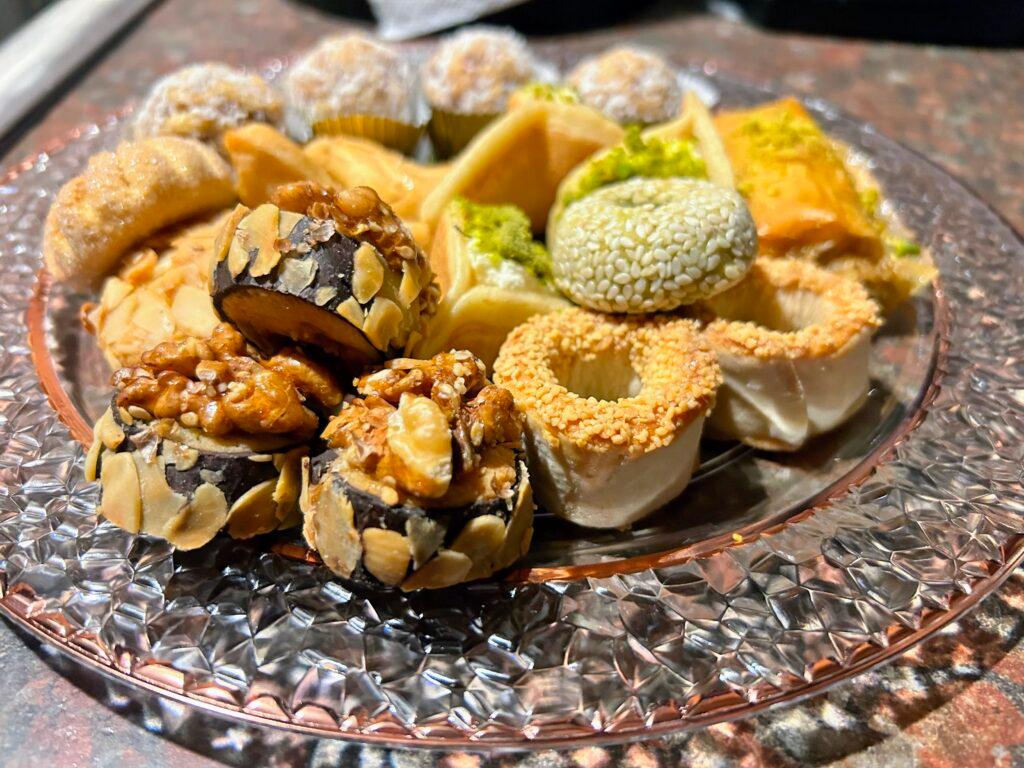
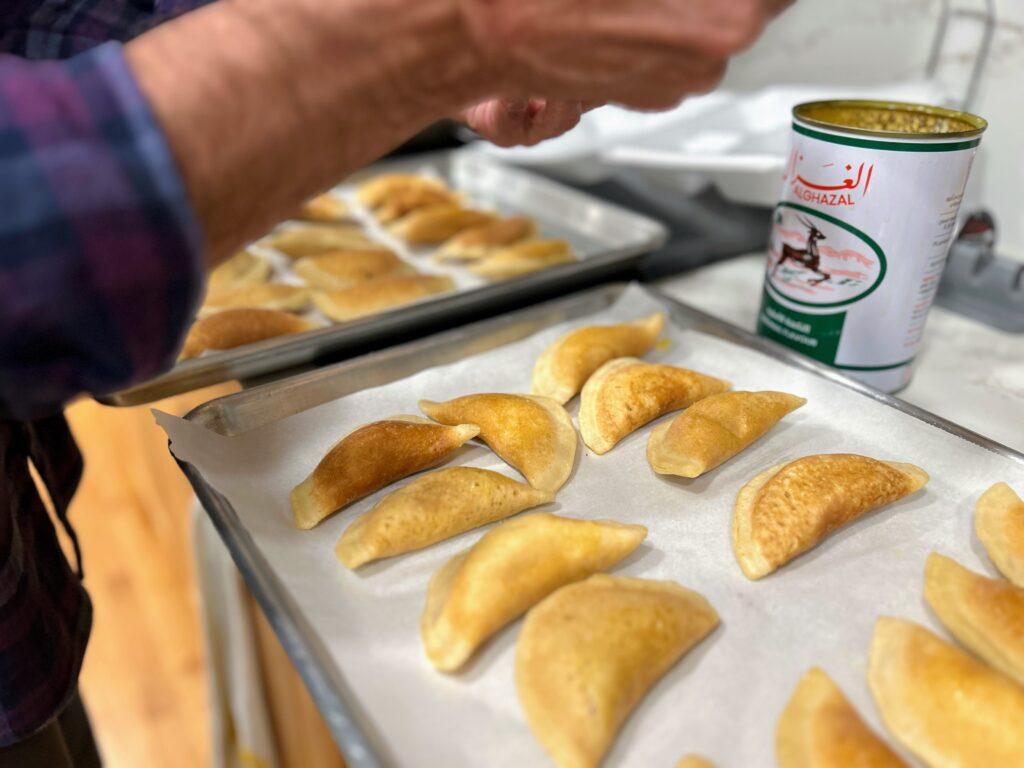
Arabic for "upside down," Maqluba is a layered dish. Think Arabian lasagna — rice, meat and fried vegetables stacked in a deep pot. Once cooked, it’s dramatically flipped over.
"Mediterranean countries make something similar," Feda explained as she organized the kitchen. "But in Palestine, every city puts its own touch on it. My family makes it with all of this."
She smiled, glancing over at Kamel.
"When I tell his family, ‘That’s not right,’ they say, ‘No, yours is not right!’ And we have this discussion every year — whose Maqluba is right?"
Her laughter faded into quiet concentration as the couple continued cooking. The smell of cumin, coriander, cinnamon, nutmeg and peppers filled the home.
Ramadan isn’t about the food
As the sun lowered, the pace in the kitchen quickened, and Feda directed her sons and husband to finish prepping before the evening prayer. Her sons arranged drinks, plates and cutlery while the couple put a salad together and washed dishes.
Despite the excitement over the meal, Feda and Kamel each emphasized that Ramadan isn’t about the food.
"A lot of people misunderstand Ramadan," Kamel said. "They think it’s just about eating because you’re hungry all day. But it’s about more than that."
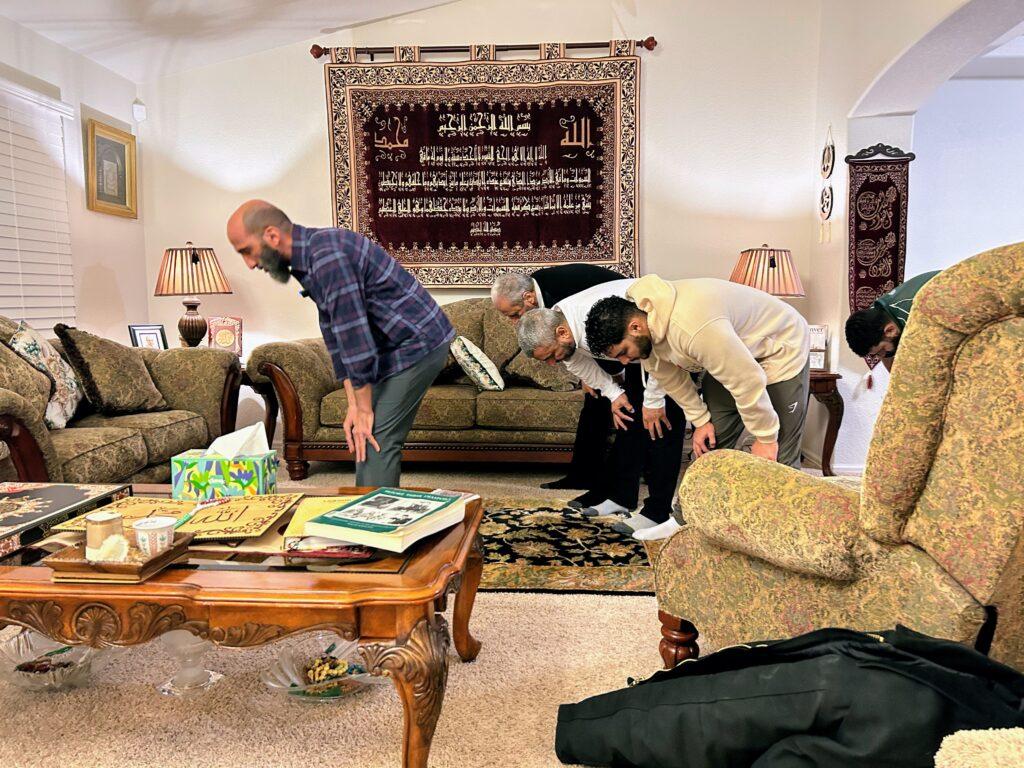
Feda chimed in.
"It’s a spiritual renewal. From the beginning of the month to the end, your spirituality should change exponentially. You should take this time to connect with God."
"It’s not just abstaining from eating and drinking," Kamel added. "It’s about restraining your emotions, your desires — everything."
The smart doorbell alerted the family that their first guests were outside. The family greeted their friends in the entryway with hugs and “Ramadan Mubarak," meaning happy or blessed Ramadan.

The home, already full of the aroma of slow-cooked food, overflowed with the comfort of old friendships.
"You were one of the first people to invite me to Iftar," Kamel told his friend, reflecting on a 25-year-old memory. From across the room, Feda smiled.
"And they got to watch our boys grow up and we got to watch theirs," she added.
A mix of English and Arabic filled the house as other guests filed in.
One pot, three people and a whole lot of faith
The room quieted when hearing the call to prayer at sunset.
The first bite of the day is small — a date and a sip of water. It’s a tradition that dates back centuries to the time of the Prophet Muhammad.
Kamel led the group in prayer. The melodic tone in his voice, the synchronized movement of everyone together — standing, bowing — a peaceful rhythm of devotion.
When they finished praying, the group reunited in the kitchen. It was time for the Maqluba.
"I have to flip it! It's a big one," Kamel said, readying himself. "Might take two!"
The group strategized, some throwing out advice: Three people, one massive pot, and one chance to get it right.
"If we spill, we have Papa John’s just down the street. Chipotle,” Kamel joked as others laughed.
A countdown. Then silence filled the room as the hot pot flipped midair, nearly throwing its contents on the floor.
"We did it!" Kamel cheered.
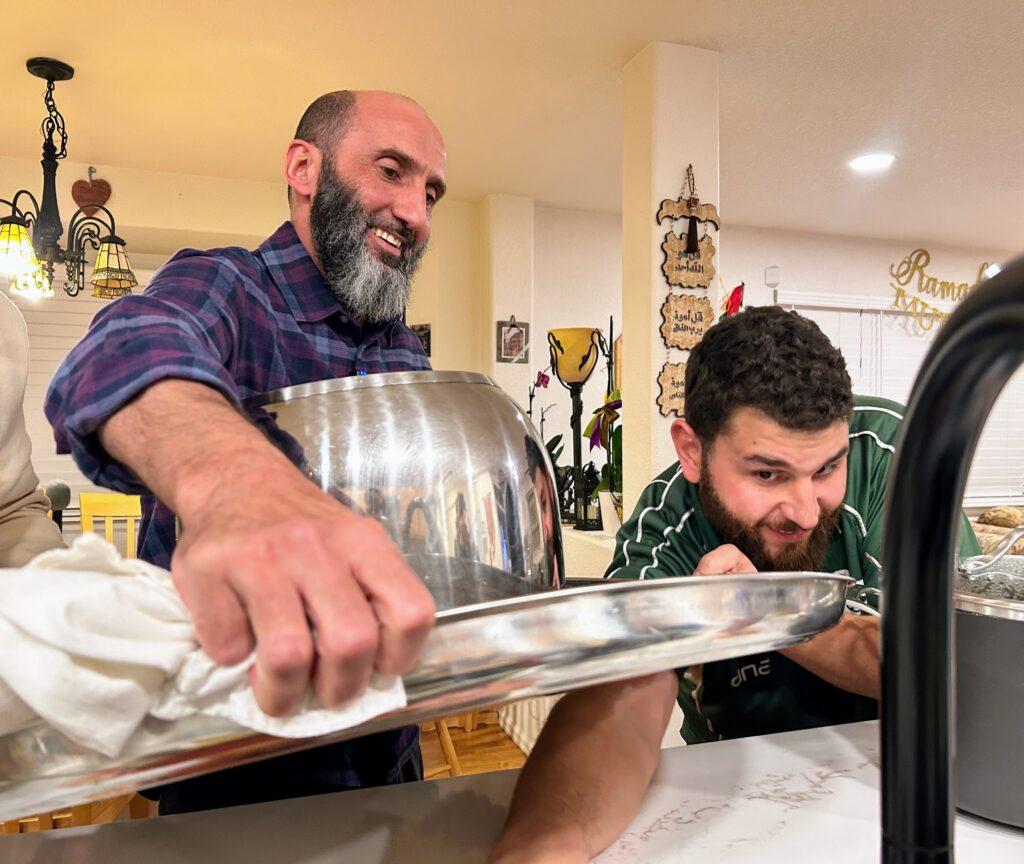
The group dug into the heaping pile of rice, chicken and veggies, topped with toasted nuts. The men ate their meal in the living room, while the women gathered in the kitchen.
All complimented Feda and Kamel for the meal, their bellies full of gratitude. Kamel then prepped homemade Qatayef for dessert — tiny pillowy pancakes stuffed with homemade cream and topped with crushed pistachios.
"You can have Qatayef any time of year but during Ramadan?” Feda said, a bright smile on her face, scanning the room. “It just tastes better. Everything does."

